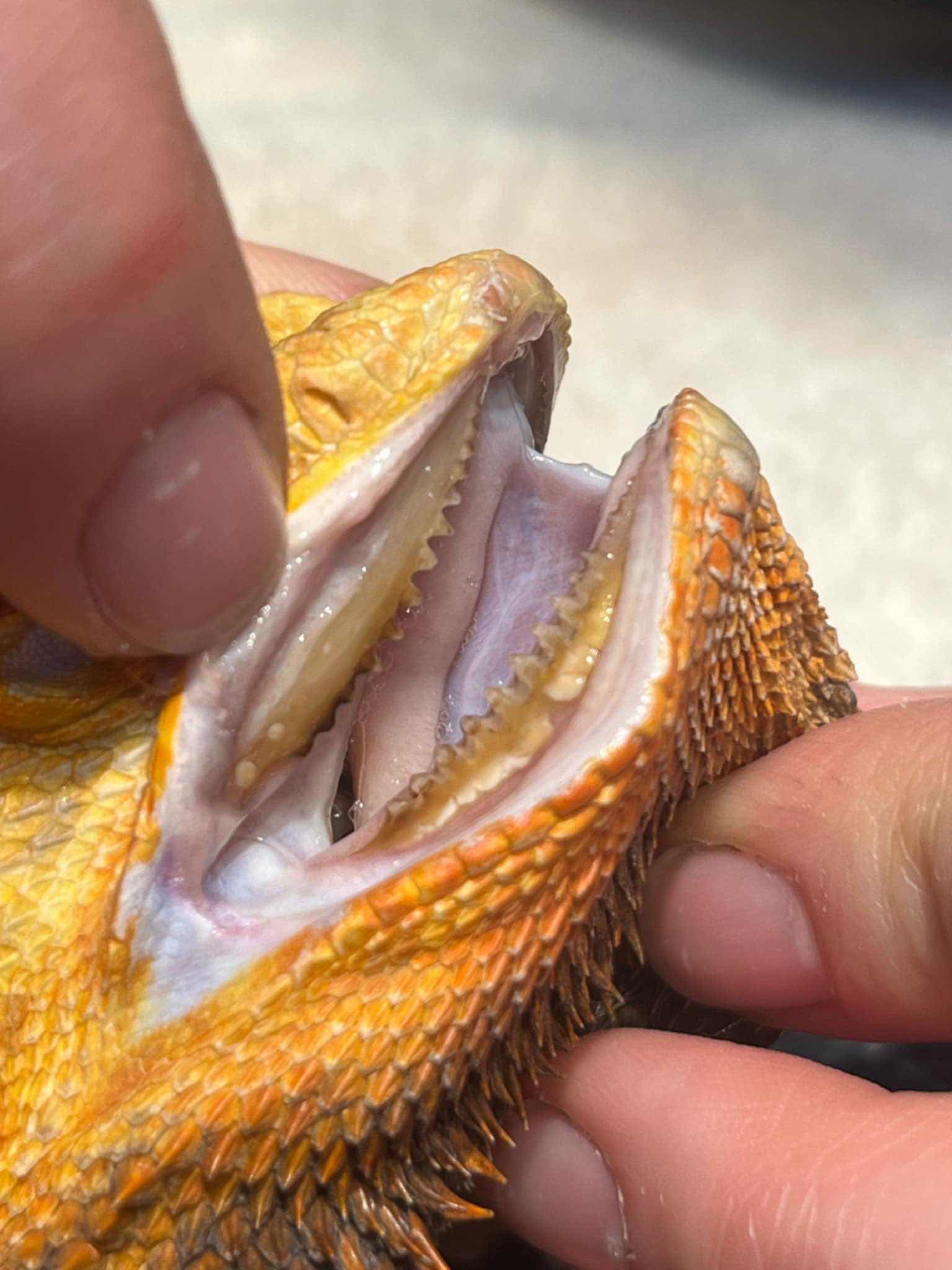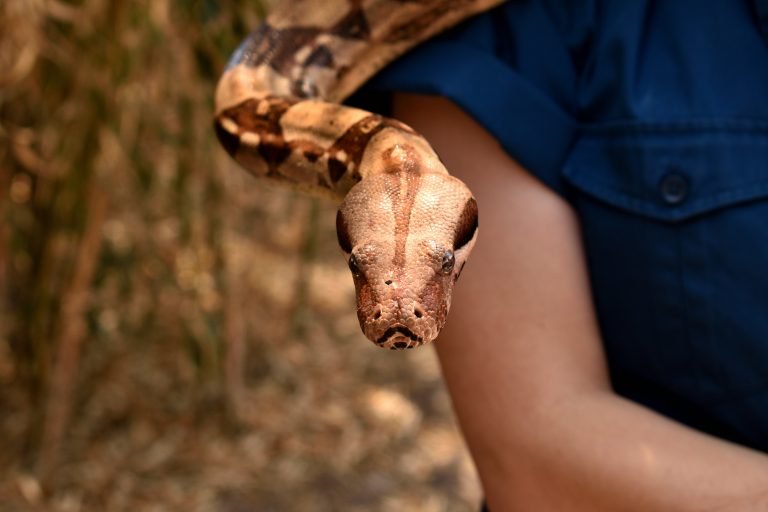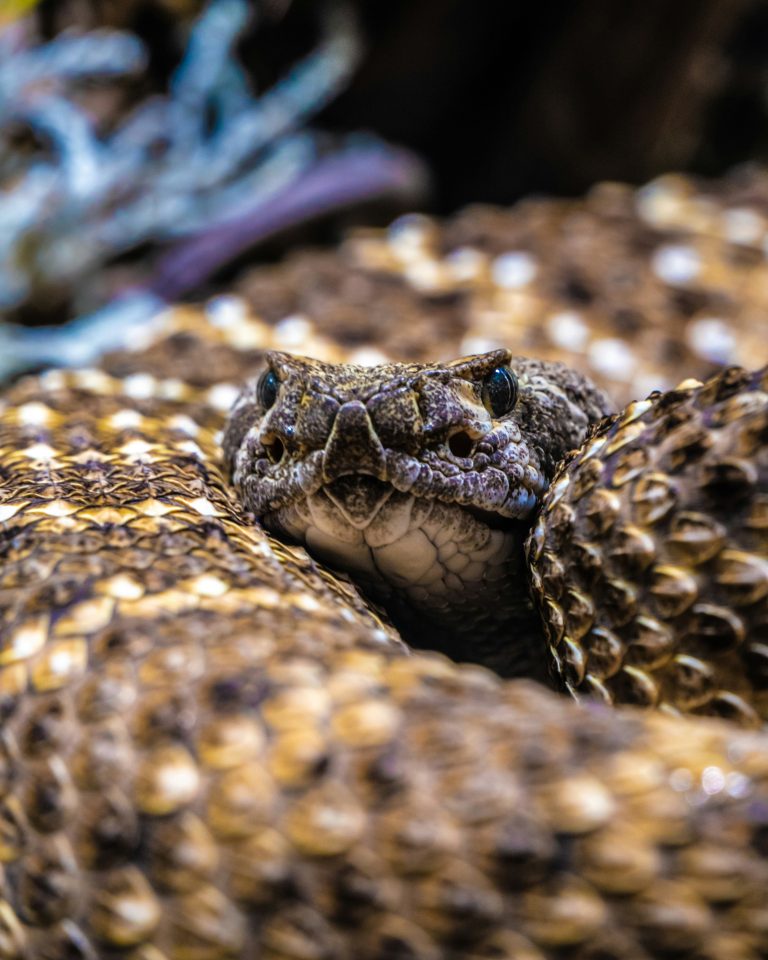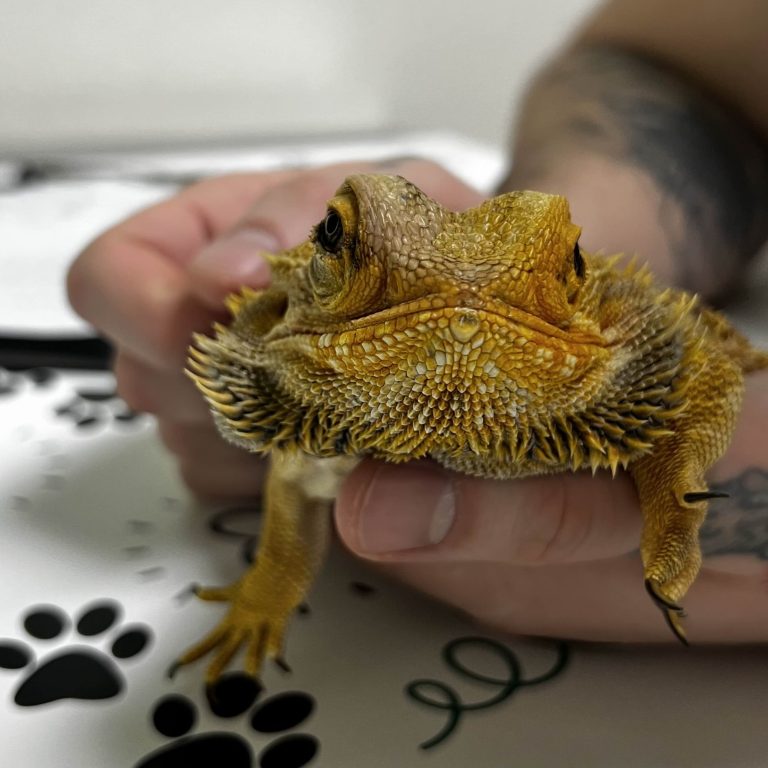Understanding Dental Disease in Bearded Dragons: Why Veterinary Care is Essential
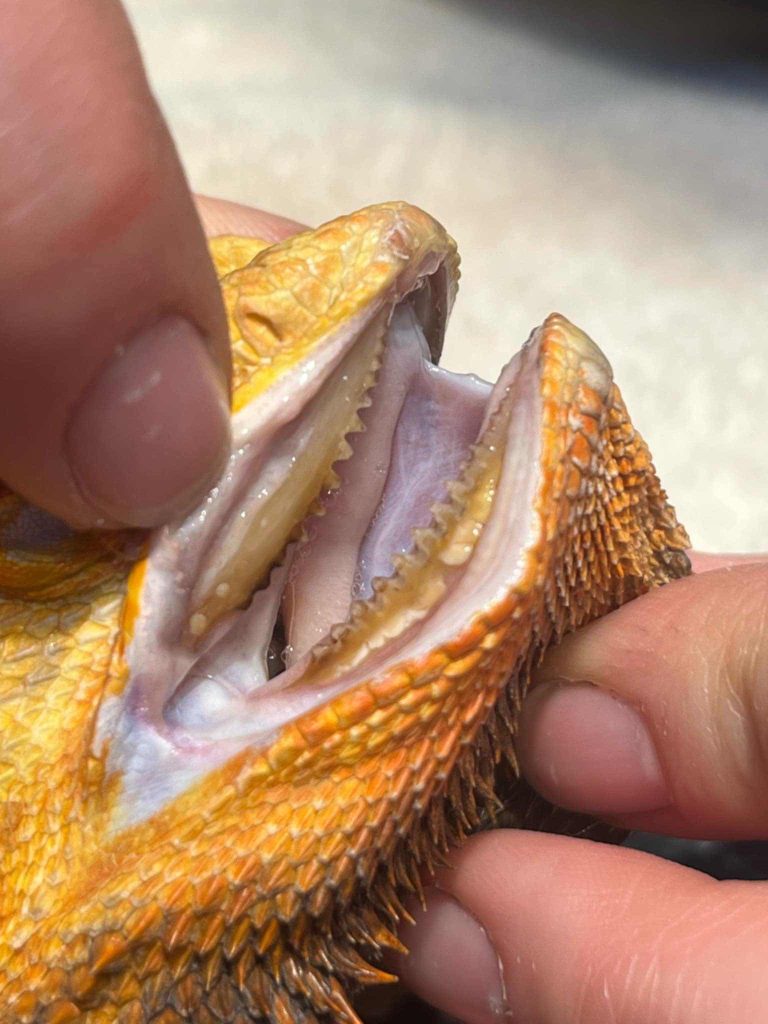
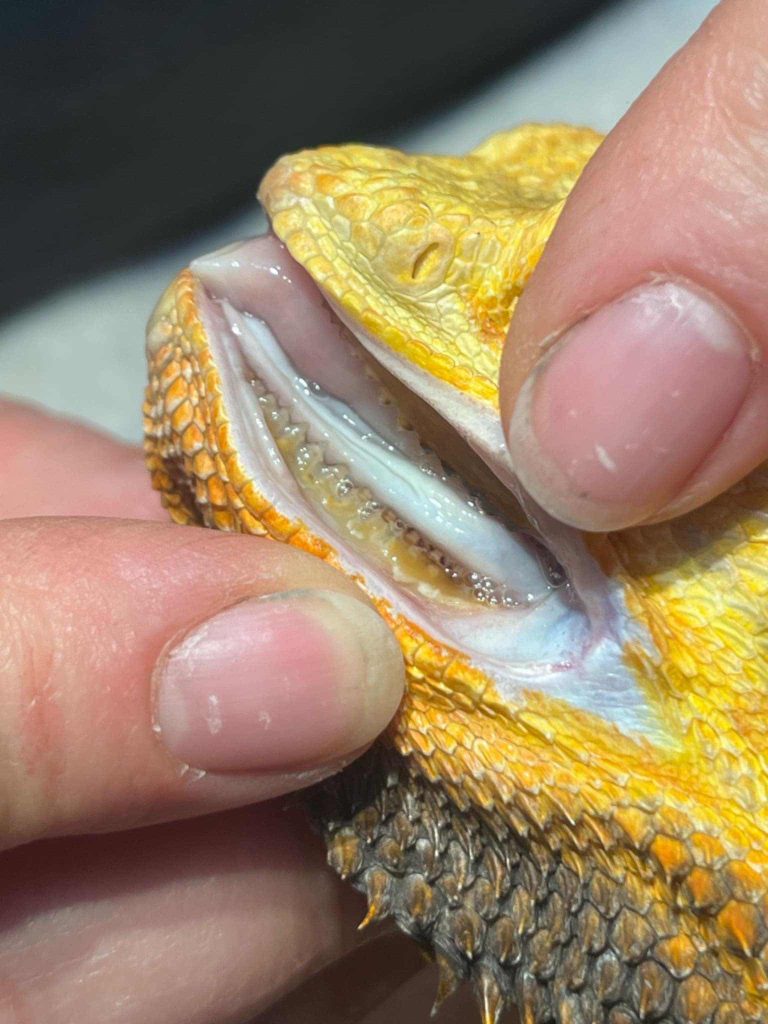
*Plaque on Bearded Dragon Teeth (top) / Cleaned Dragon Teeth (Bottom) – Performed by Dr. Bloom at Kensington Bird and Animal Hospital
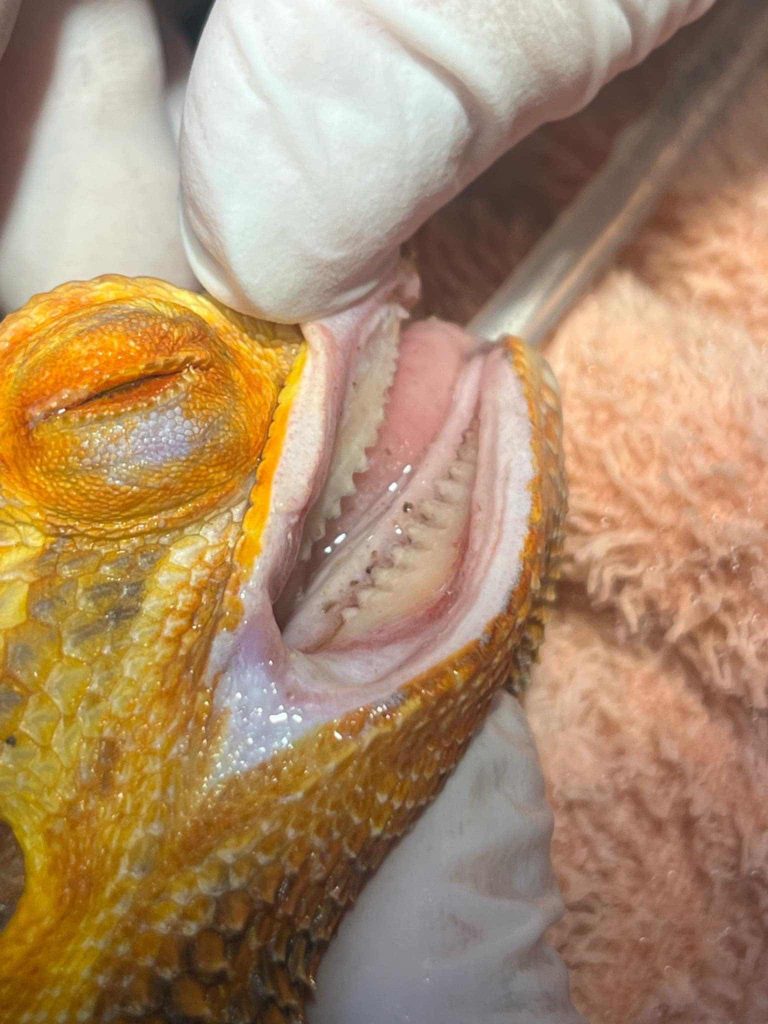
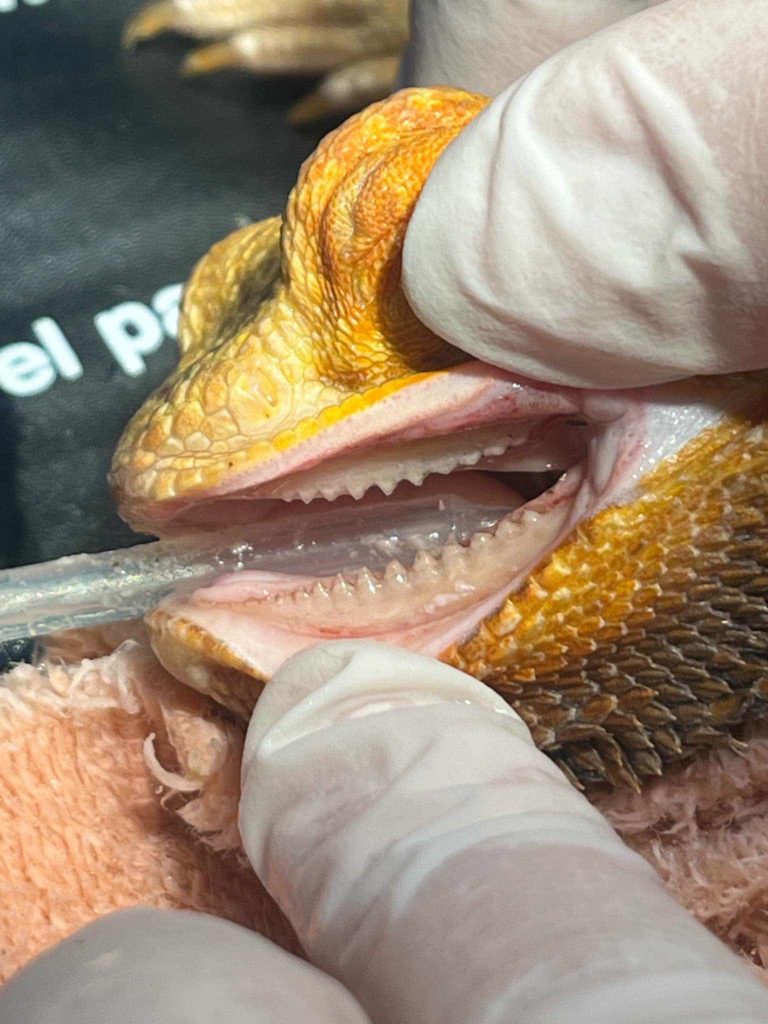
Bearded dragons are beloved pets, known for their docile nature and engaging personalities. However, like all reptiles, they are susceptible to a range of health issues, including dental disease. Unfortunately, many owners may not realize how crucial dental health is for their scaly companions. In this post, we’ll delve into the common dental problems that bearded dragons face, the symptoms to watch for, and why taking your dragon to the vet for dental issues is a must.
Common Dental Diseases in Bearded Dragons
- Periodontal Disease: This condition involves inflammation of the tissues surrounding the teeth. It can be caused by poor oral hygiene, leading to plaque buildup and eventual tooth loss if not addressed.
- Tooth Rot (Necrotizing Stomatitis): A serious bacterial infection, tooth rot can result from injuries or underlying health issues. Symptoms may include swelling, redness, and foul-smelling breath.
- Abscesses: Dental abscesses can form due to infections in the tooth or gums, leading to pain and potential systemic infection. These can be particularly problematic as they may not be immediately visible.
- Malocclusion: This refers to misalignment of the teeth, which can occur due to genetic factors or improper diet. Misaligned teeth can cause pain and difficulty eating.
Signs of Dental Problems
As a bearded dragon owner, it’s vital to monitor your pet for signs of dental issues. Look for:
- Swelling around the jaw or mouth
- Excessive drooling or oral discharge
- Difficulty eating or a reluctance to eat
- Bad breath (halitosis)
- Visible plaque or tartar buildup on teeth
- Behavioral changes, such as lethargy or aggression
If you notice any of these symptoms, it’s essential to consult a veterinarian experienced in reptile care.
Why Veterinary Care is Crucial
- Professional Diagnosis: A vet can conduct a thorough examination to accurately diagnose dental issues. Many dental problems can mimic other health conditions, making a professional assessment vital.
- Treatment Options: Depending on the diagnosis, treatment can range from professional cleanings to medications or surgical interventions. A vet will provide a tailored treatment plan that ensures your dragon’s health and comfort.
- Preventative Care: Regular veterinary check-ups can help identify dental issues before they become severe. Your vet can offer advice on proper dental hygiene practices, including diet recommendations that promote oral health.
- Pain Management: Dental issues can be painful and distressing for your dragon. A vet can prescribe pain relief and antibiotics if needed, ensuring your pet remains comfortable throughout treatment.
- Education for Owners: A visit to the vet is an excellent opportunity to learn more about bearded dragon care, including how to maintain dental health. Your vet can provide resources on diet, habitat, and grooming to help prevent future issues.
Conclusion
Dental disease is a serious concern for bearded dragons, but with proactive care and veterinary support, many issues can be prevented or effectively treated. As a responsible pet owner, prioritizing your dragon’s dental health is essential for their overall well-being. If you notice any signs of dental problems, don’t hesitate to seek veterinary care. Regular check-ups and a commitment to dental hygiene will ensure that your bearded dragon remains happy and healthy for years to come!

